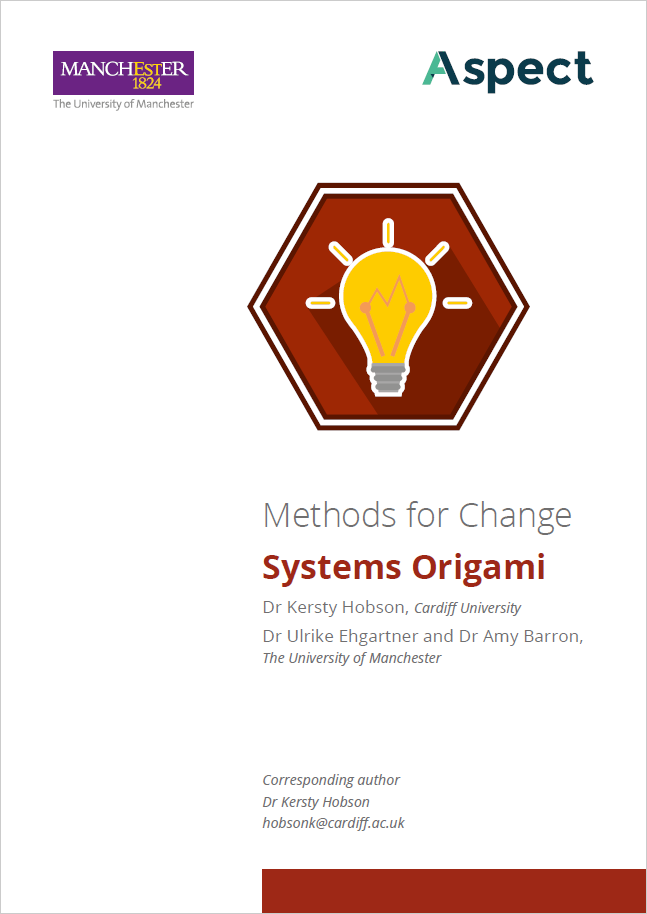Research Method: Systems Origami
Systems Origami has its origins in ‘Business Origami’, used by designers to rethink how goods and services are created and delivered. It is a playful, hands-on, intuitive participatory method and design tool, to explore how objects and infrastructures shape what we do in our dayto- day life, and how we might do things differently.
The aim is to explore our social lives through particular goods and services, with the goal of redesigning and rethinking why and in what ways we make use of them, to enable change. In collaborative workshop settings, participants physically map out the material and social ‘lives’ of the goods and service under investigation, using handmade drawing or pre-printed pictures to represent different parts of the life cycle in question, drawing lines and arrows to visualise their relationships, to both understand existing systems and to develop a vision of an alternative. This method is particularly useful in settings where different stakeholders are brought together to envision alternatives to complex problems. It is different from some other sociological participatory approaches as it focuses less on understanding, sharing and shifting peoples’ values, and more on how the material world shapes how we put desired change into practice. The discussion in these workshops is thus not about how we can engage with goods differently, but what these goods are, where they come from, and what they do to/with us.
You can find all the research outputs from the Methods for Change series here






